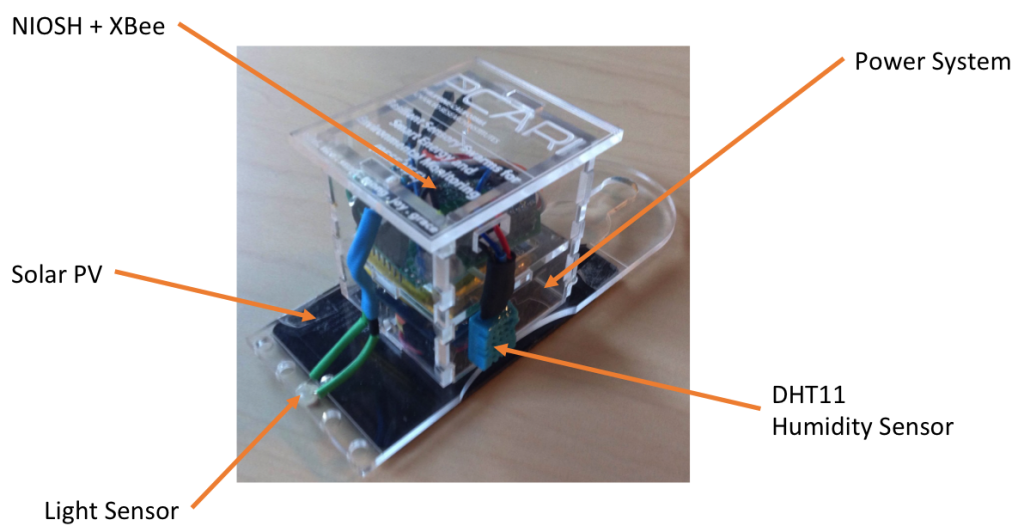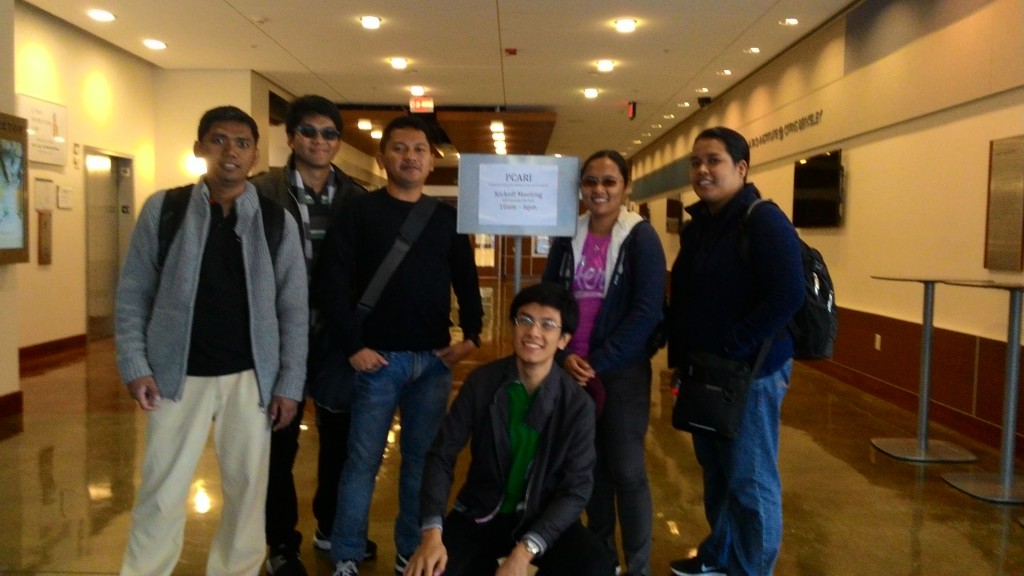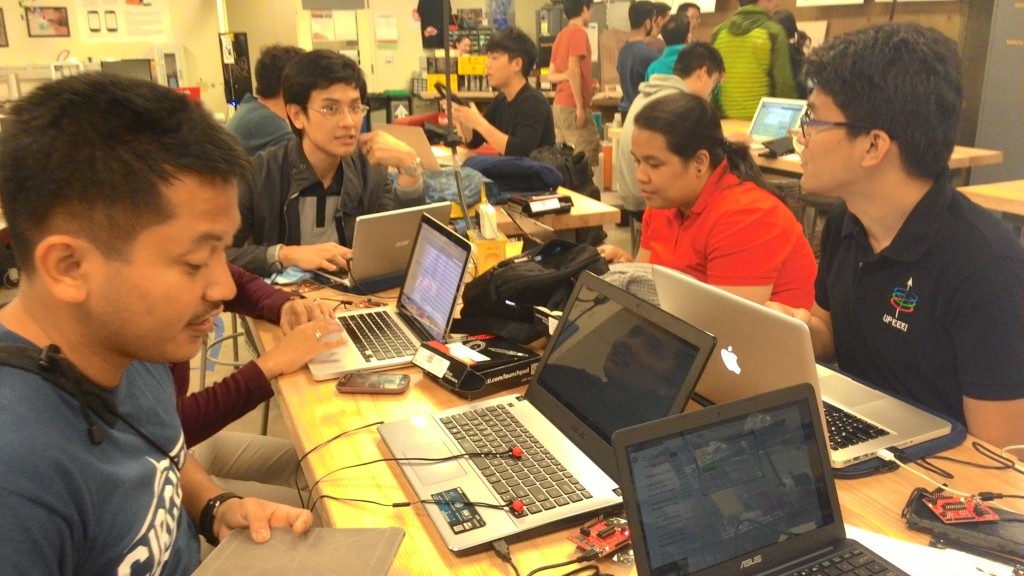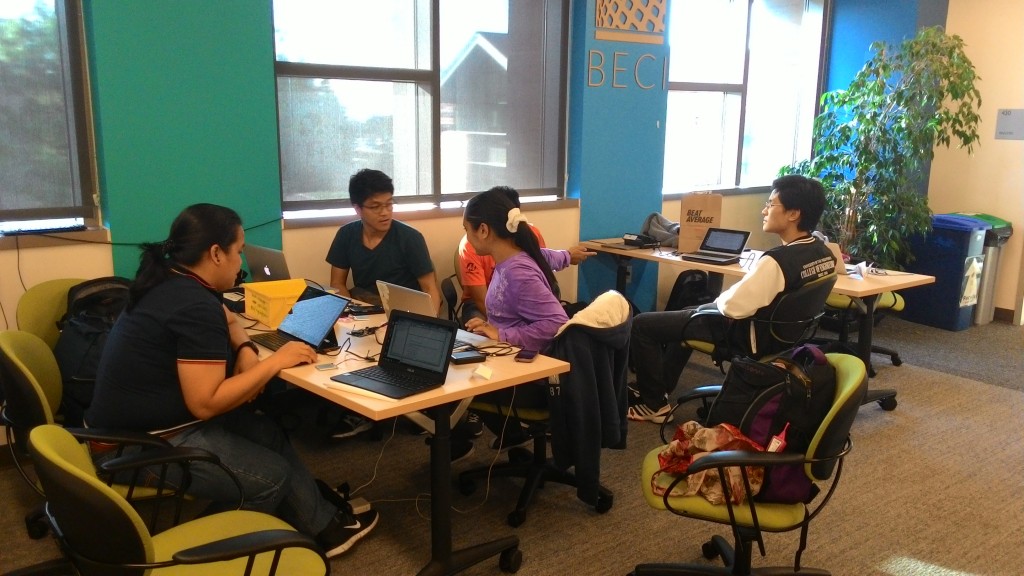For information about the Workshop on the Global Data Plane (GDP), click here.
Resilient Sensory Swarms for Smart Energy and Environmental Monitoring
The PCARI RESE2NSE project explores the concept of an open swarm hardware and software platform as a means to address energy and environmental monitoring — a challenge that is foremost in every country in the world, but even more outspokenly so in the developing countries. With a focus on smart energy usage and delivery, and dynamic environmental monitoring, the Swarm Vision creates an entirely new perspective that allows for increased scalability, reliability and extensibility of monitoring and operational sustainability of public energy utility systems.
In addition, the project is also aimed at developing new technologies that will use micro-fabrication technologies to enable low-cost, resilient, and scalable instrumentation of the power distribution infrastructure.
- Project Leader: Louis P. Alarcon (UP Diliman)
- Principal Investigator: Jan M. Rabaey (UC Berkeley)
- Co-Project Leader: Paul K. Wright (UC Berkeley)
Specific Objectives
We address a dual-horizon research agenda, where in the short term we develop solutions for a rapid deployment of a resilient electrical distribution system through component integration, while in the long term we advance fundamental micro-fabrication research to further enable the creation of small, ubiquitous sensor nodes as well as reliable system architectures to guarantee system functionality under a broad range of operational conditions.
Rather than develop specialized, brittle and expensive stovepipe solutions for each of these functions, we propose an open ubiquitous software and hardware platform that shares resources such as MEMS and NEMS sensors, wireless networks and computation over multiple applications, and provides resources opportunistically based on availability. Innovative ways to provide information to humans through augmented user interfaces are an essential component of this vision.
Project Components
The project has two major components: (1) Open ubiquitous software and hardware test platform that shares resources such as MEMS and NEMS sensors, wireless networks and computation over multiple applications, and provides resources opportunistically based on availability and (2) UPD Directed Invention Laboratory for Resilient and Scalable Sensor Networks
Target Results
The project will have two major results: (1) the creation of the RESE2NSE Test Platform and (2) the increased collaboration between UPD and UCB.
The RESE2NSE Test Platform (TP) will allow the design and development of resilient sensory swarms at all levels of the system hierarchy — from the development of sensors, to the sensor node, to the communication protocols and network layers, all the way to the system and application level.

An initial PCARI RESE2NSE Test Node for environmental monitoring. Jointly developed by the UPD and UCB teams during the first RESE2NSE Design Workshop.
Thus, the TP will facilitate the creation of a monitoring system will continue to collect data even in times of network or power interruptions or in case of extreme environmental circumstances such as earthquakes, typhoons, flooding, etc. The TP allows the rapid and structured exploration of technologies such as local data caching and subsequent burst data transmissions, alternative network solutions, as well as redundant sensing and energy harvesting.
The co-design and joint implementation of the TP will also serve as an enabler for the transfer of knowledge, technologies and expertise between UPD and UCB. The TP will also directly allow the faster development and potentially the creation of new technologies at all levels of the system hierarchy, either individually or in the context of the whole system
Design Workshop 1 Gallery (February 21 – March 21, 2015 at UCB)
UPD team members: Percival Magpantay, Rico Jossel Maestro, Chris Vincent Densing, Adelson Chua, Joy Alinda Madamba, Grace Dy Jongco



